When Suspects Outsmart the Police: In the high-stakes world of criminal investigations, there are rare instances where suspects manage to outmaneuver even the most seasoned detectives. This article provides an in-depth analysis of three such cases, offering valuable insights into interrogation tactics, legal rights, and the psychology of criminal investigations.

Case 1: Mark Denclow – The Gang Leader’s Calculated Silence
Mark Denclow, a gang leader accused of kidnapping, torturing, and murdering a former member, demonstrated exceptional control during his interrogation. His strategy was a masterclass in selective silence and redirection.
Setting the Stage
From the outset, Denclow established clear boundaries:
Detective: “Here was a motorcycle club affiliation with one, is that right?”
Denclow: “I don’t have any answers for the for questions like that.”
This immediate refusal to discuss his affiliations set the tone for the entire interrogation.

Tactical Redirection To Outsmart the Police
When pressed about his relationship with a woman named Nicole, Denclow skillfully redirected:
Denclow: “I’m not going to answer any more questions about Nicole. I don’t have any more answers for you until I find out what you’re talking about.”
Detective: “Well, I’m trying to get to that, but part of that’s going to involve how long you’ve known Nicole.”
Denclow: “Well, that’s you’re gonna if you if you don’t want to tell me what the heck I’m doing here, say so, because I’m not going to sit here and give you a bunch of my background so you could play whatever kind of game you’re playing.”
This exchange showcases Denclow’s ability to flip the script, forcing the detectives to reveal more information than they intended.

Maintaining Composure
Even when detectives mentioned potentially incriminating events, Denclow remained calm and noncommittal:
Detective: “A few months before this car thing happened, um, the call was at your house and uh somebody busted in the house and uh roughed her up a little bit, tighter up. You remember that?”
Denclow: “You know, I can’t really answer to that. You’re gonna have to get that story from her.”
The Power of Asking “Why”
Denclow consistently questioned why he was being held:
Denclow: “What did I what what did I do that was illegal in any of that stuff? What did I even have to do with it? I wasn’t even there for any of it, none of it, not anything that you’ve talked about so far.”
This tactic forced the detectives to reveal more of their hand while allowing Denclow to maintain his innocence without providing any information.
Key Takeaways from Denclow’s Interrogation
- Establish boundaries early
- Redirect questions back to the interrogators
- Maintain calm, even when presented with potentially incriminating information
- Consistently question why you’re being held
- Refuse to discuss specific topics or individuals
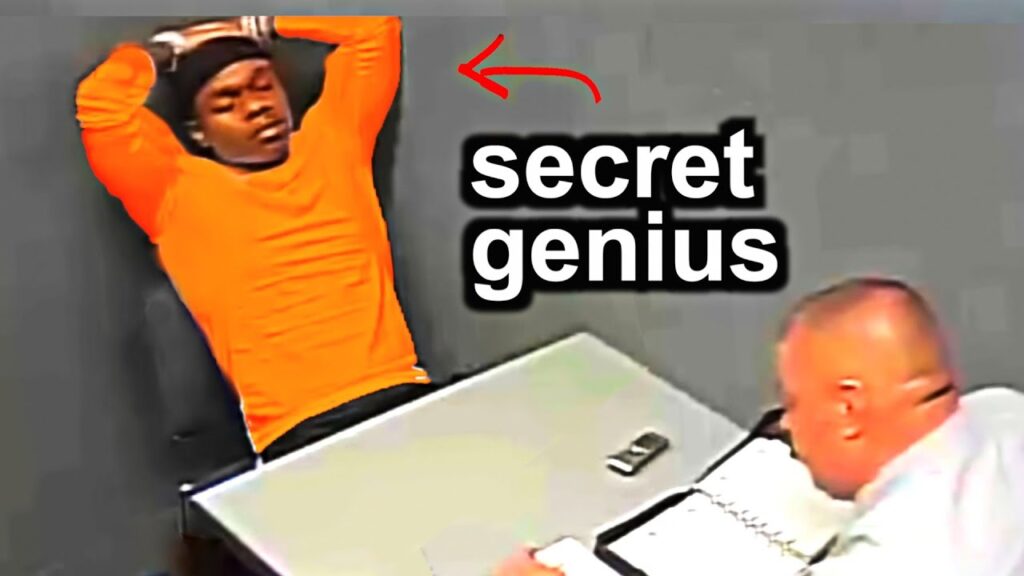
Case 2: “DaBaby” (Jonathan Kirk) – Mastering the Art of Silence
Rapper Jonathan Kirk, known as “The Baby,” showcased the power of remaining silent during an interrogation. His approach was remarkably straightforward: he simply refused to engage.
The Silent Treatment To Outsmart the Police
From the beginning, Kirk refused to even confirm his identity:
Detective: “Can you state your name for the record?”
Kirk: [Silence]
Detective: “Do you know why you’re here today?”
Kirk: [Silence]
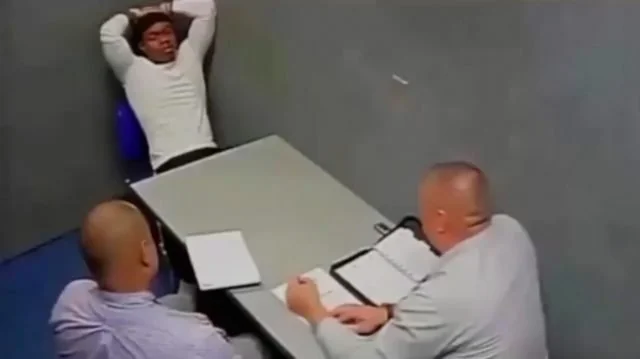
Minimal Responses
When Kirk did speak, his responses were brief and non-committal:
Detective: “We have you on camera at the hotel.”
Kirk: “Whatever time the camera showed me not robbing nobody.”
This response cleverly acknowledged his presence without admitting to any wrongdoing.
Challenging the Evidence To Outsmart the Police
Kirk consistently challenged the detectives to prove their case:
Detective: “So you believe somebody that’s going to tell you that somebody else did something to save their own ass?”
Kirk: “Well, with all the additional evidence, yes.”
This response put the onus back on the detectives to present concrete evidence.
Asserting Innocence Without Details
Kirk maintained his innocence without providing any specific information:
Kirk: “I didn’t rob nobody.”
Detective: “Well, give me your side of the story. You get, I mean, convince me because I got a lot of evidence.”
Kirk: “I got a lot of physical evidence. Like what?”
By asking “Like what?”, Kirk forced the detective to reveal more about their case without offering any information himself.
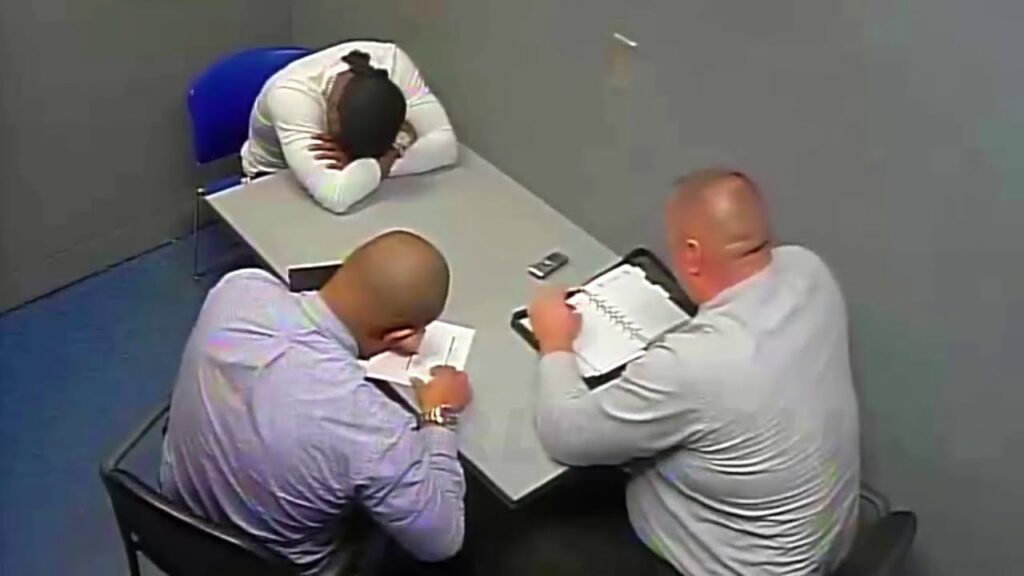
The Power of Boredom To Outsmart the Police
Kirk’s ability to remain silent for long periods eventually wore down the detectives. At one point, he even appeared to fall asleep during the interrogation, demonstrating his complete lack of concern for their tactics.
Key Takeaways from Kirk’s Interrogation
- Remain silent as much as possible
- When speaking, keep responses brief and non-committal
- Challenge the detectives to prove their case
- Assert innocence without providing details
- Use boredom and indifference as a tactic
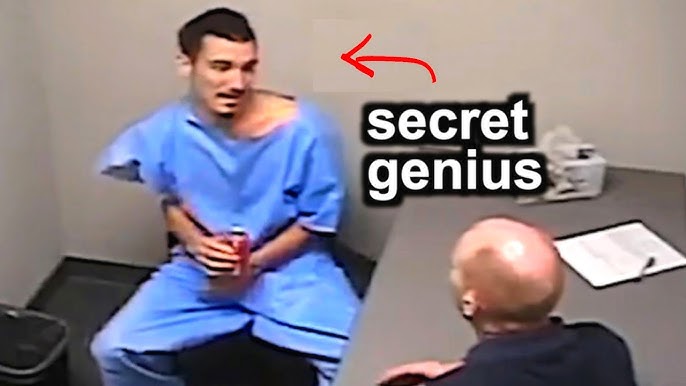
Case 3: Jeff Pearson – The Addict Who Knew the System
Jeff Pearson, a heroin addict arrested for robbery, displayed an impressive understanding of his rights and interrogation techniques. Despite his addiction, Pearson managed to outsmart the detectives at every turn.
Setting the Tone with Silence
Pearson began the interrogation by refusing to even acknowledge his Miranda rights:
Detective: “Do you understand your rights?”
Pearson: [Silence]
Detective: “You understand we’re getting paid more than you are, so we can sit here for a long time.”
Pearson: [Continues to remain silent]
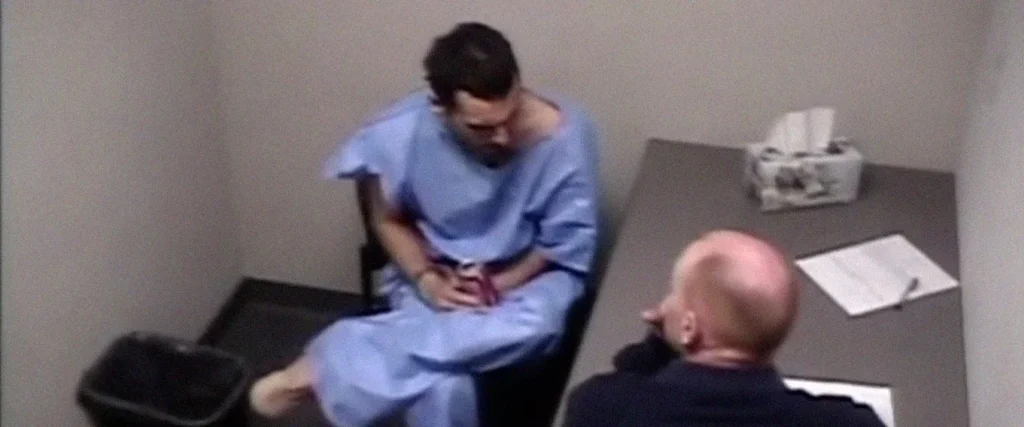
Leveraging Personal Circumstances
Pearson cleverly used his addiction to control the pace of the interrogation:
Pearson: “I need methadone.”
Detective: “I don’t have any. Do you have a prescription for it?”
Pearson: “Because I’m a f***ing junkie and you guys didn’t know I can’t go through withdrawal here.”
This tactic established a potential excuse for erratic behavior and created a sense of urgency.
Calling Out Interrogation Tactics
Pearson repeatedly exposed the detectives’ strategies:
Pearson: “I don’t talk to the police, man. I’ve been through the system. You’re not my friend, I’m not your friend. You’re trying to fing get me or you’re trying to train… all you’re trying to get is some fing stupid a** f***ing confession and you’re not gonna get one.”
Using Legal Knowledge To Outsmart the Police
Pearson demonstrated a deep understanding of the legal process:
Pearson: “Every little stupid thing that you’ve asked me, dude, is going to be in the discovery… I mean, you halfway know the system, how things work.”

The Power of “I Don’t Know” To Outsmart the Police
When pressed for details, Pearson often claimed ignorance:
Detective: “What time did you get over to Aaron’s house?”
Pearson: “I don’t know. Anything I say here can and will be used against me.”
The Final Move: Requesting Medical Attention
In a brilliant final move, Pearson requested medical attention:
Pearson: “I need to go to the hospital. I’m coughing up blood.”
This effectively ended the interrogation and created a record of potential mistreatment.
Key Takeaways from Pearson’s Interrogation
- Use silence strategically
- Leverage personal circumstances to your advantage
- Demonstrate knowledge of legal processes
- Call out interrogation tactics
- Use “I don’t know” to avoid providing information
- Know when to end the interrogation
Conclusion: When Suspects Outsmart the Police
These three cases demonstrate the immense power of understanding your legal rights and the psychological tactics used in interrogations. While each suspect employed different strategies, they all shared a common thread: a refusal to be intimidated or tricked into providing incriminating information.
Mark Denclow’s calculated silence and redirection, “The Baby” Kirk’s unwavering refusal to engage, and Jeff Pearson’s deep understanding of the legal system all proved effective in thwarting the detectives’ efforts to extract confessions or incriminating statements.
When Suspects Outsmart the Police
It’s crucial to note that while these tactics were successful in these specific cases, the safest approach in any interrogation is to remain silent and request an attorney. These cases serve as powerful reminders of the importance of constitutional rights and the need for legal education in our society.
As we’ve seen, knowledge truly is power in the interrogation room. Understanding your rights, recognizing common interrogation tactics, and maintaining composure under pressure can make all the difference when facing questioning by law enforcement.
When Suspects Outsmart the Police
These cases offer valuable lessons not just for potential suspects, but for anyone interested in criminal justice, law enforcement, or civil liberties. They underscore the importance of our constitutional protections and the power of an individual to stand firm in the face of intense questioning.
In the end, these interrogations remind us that in the American justice system, the burden of proof lies with the prosecution. By refusing to provide information and insisting on their rights, these suspects forced the authorities to build cases based on evidence rather than confessions – a cornerstone of fair and just legal proceedings.

